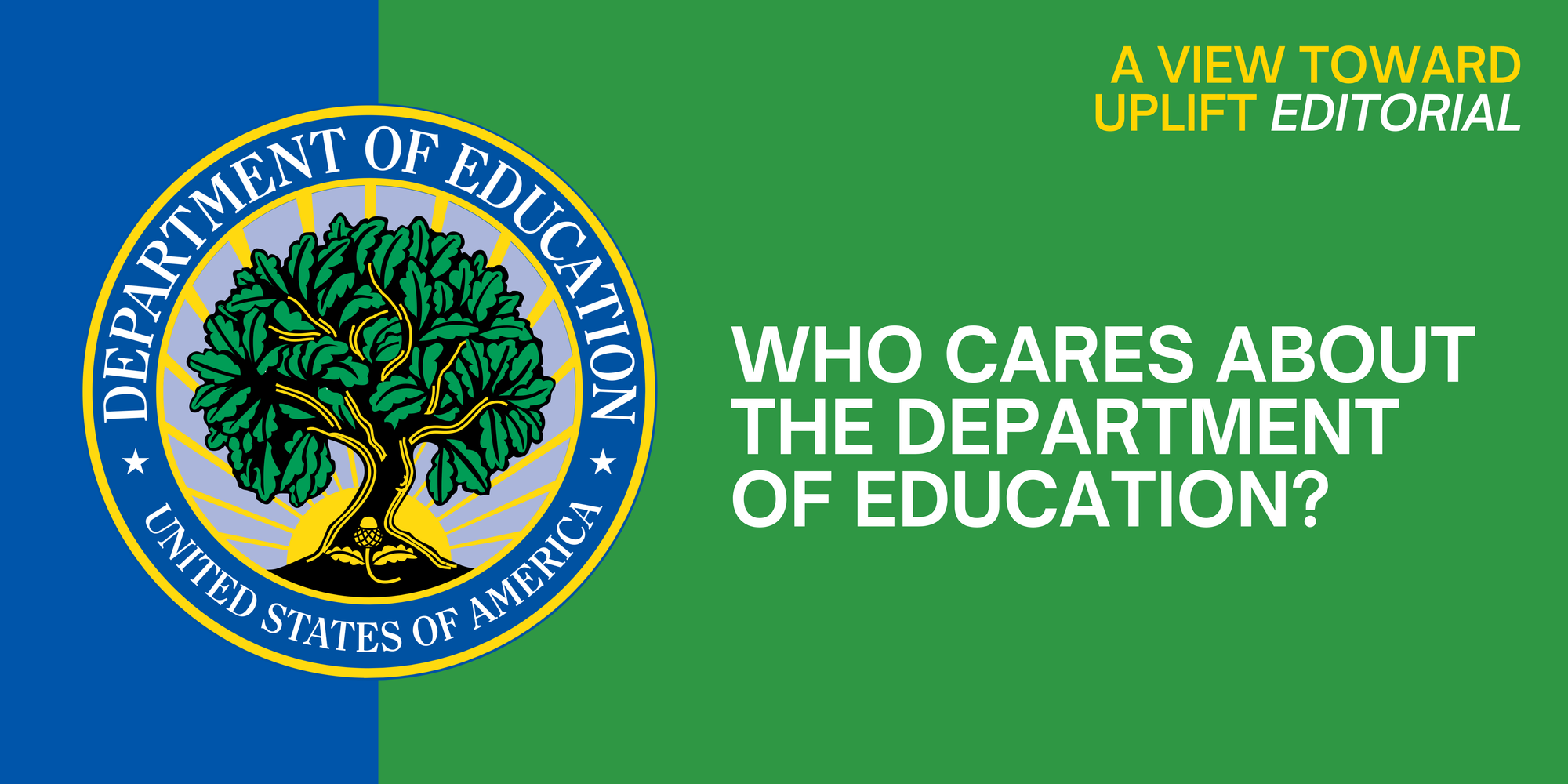A View Toward Uplift: Who Cares About the Department of Education?
In the latest A View Toward UpLift editorial, UpLift Chronicles' editorial board takes on the Trump administration's executive order to dismantle the U.S. Department of Education.

The Department of Education is in peril. After laying off about half the department’s staff, President Trump has followed up on statements from the campaign trail by signing an executive order calling for the dismantling of the department. The order directs Education Secretary Linda McMahon to “take all necessary steps to facilitate the closure of the Education Department” while operating to “the maximum extent appropriate and permitted by law.”
What is the Department of Education, and why should New Mexico students and caregivers care about it?

What does the Department of Education do?
Contrary to the executive order’s claim that Federal programs are “controlling American education,” the department doesn’t set curriculum, mandate or test education standards, or directly operate schools. Established as a full Cabinet-level department in 1979, its primary stated purpose was to “strengthen the Federal commitment to ensuring access to equal educational opportunity for every individual.”
Today’s Department of Education identifies education issues, protects students against discrimination and civil rights violations, and administers funding programs that support students with everything from teachers and counselors to mental health assistance and Individualized Education Programs (IEPs).
Crucially for historically marginalized students, the department administers Title 1, the largest federal educational financial assistance program for K-12 schools. Created in the 1960s as a key part of Lyndon B. Johnson’s War on Poverty, Title 1 is intended to level the playing field for low-income, differently abled, and at-risk students.
Does Albuquerque have Title 1 schools?
Schools are eligible for Title 1 funding when 40% or more of its students qualify for free or reduced-cost lunch. In Albuquerque, 70% of students are eligible, which means a lot of Title 1 schools. As of 2019, more than 90% of Albuquerque Public Schools (APS) schools were Title 1-supported, including all APS schools serving the International District.

What does Trump’s executive order mean?
The executive order offers few details about implementation. While Trump has stated that Title 1 will be “preserved in full,” the executive order specifically targets what it terms “illegal discrimination obscured under the label ‘diversity, equity, and inclusion.’” Project 2025, a blueprint that mirrors Trump’s agenda, outlines a plan to eliminate Title 1 with a 10-year phase-out, turning it into “block grants” delivered directly to states, with no oversight or requirement to help students. Could the administration consider such block grants to “preserve” Title 1, despite not being targeted to the students who need the funds?
What would this change for local students?
Cutting the Department of Education would have serious, even dire, consequences for tens of millions of American students.
According to The Century Foundation, almost a million preschoolers with disabilities and developmental delays are served by the Individuals with Disabilities Education Act: 26 million U.S. kids are enrolled in Title 1 schools, and 43 million Americans have federal school loans.
All these individuals, and others, stand to lose big if we lose the Department of Education. The Trump administration is openly hostile to diversity and inclusion efforts, and seems likely to remove protections for vulnerable students wherever it can. While an overarching strategy of resistance has yet to coalesce, we can continue to do our part by staying educated and vigilant. Watch what is actually happening, not what politicians claim they will do. Make your voice heard, and stay true to the shared values by which we all can thrive.
A View Toward UpLift reflects the opinions of the UpLift Chronicles Editorial Board. Our newspaper’s contributors hold diverse perspectives and viewpoints. This opinion column aims to discuss news and issues and pose questions that are relevant to local communities as well as our overarching readership. To add your voice to the conversation, email: info@nmblc.org.
